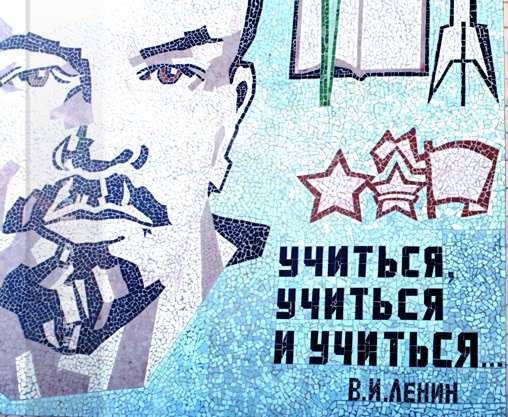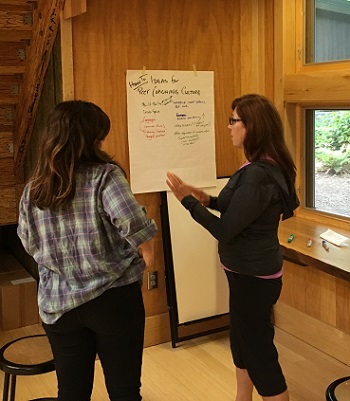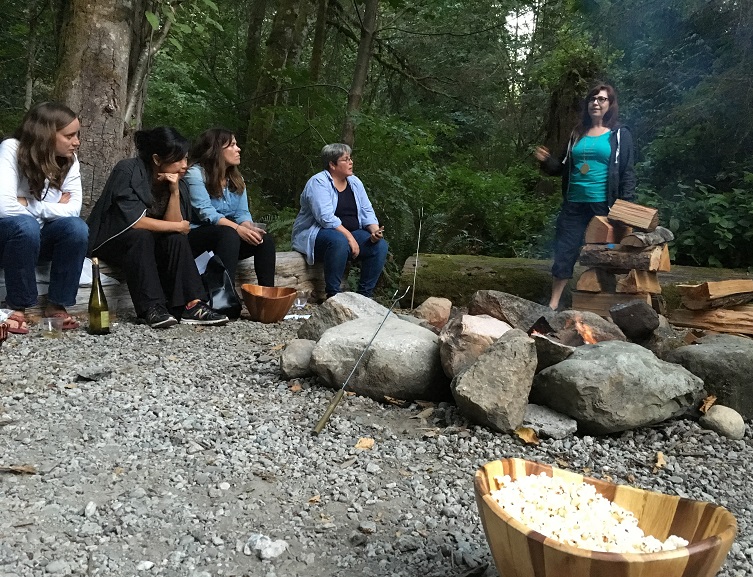Everyone experiences feelings of professional disappointment sometimes. In September, I had to miss Philanthropy Northwest’s 2016 conference in Missoula, Montana, after months of working with the team to help put it together. When I heard our staff’s stories and saw the photos, I felt I had fallen behind on my philanthropy learning curve — and missed a a lot of fun celebrating our 40th anniversary!
But I had a very good reason: I was getting my long-awaited master’s degree in psychology.
 Growing up in Russia with Lenin's ideology of “Learn, Learn, Learn” hanging on a poster in every classroom, in a family where my grandmother preached, “The century to live, the century to learn," I absorbed the importance of a good education from a young age.
Growing up in Russia with Lenin's ideology of “Learn, Learn, Learn” hanging on a poster in every classroom, in a family where my grandmother preached, “The century to live, the century to learn," I absorbed the importance of a good education from a young age.
As an adult, I also think about the importance of an integral education. This can be interpreted as a comprehensive education, one that does not stop at any point in life — a continuing system with progressive complication of learning subjects.
People often ask me about how hard it was to go back to school and pursue my education — as an immigrant, a mom, an adult? I respond, “Knowing myself and what drives me, I was able to experience a sense of balance and optimal functioning while pursuing my goal.” This is what my grandmother meant when she preached about lifelong learning.
A Transformative Process
One of the leading features of a truly integral education is when you begin to transform yourself. We must not overlook the process of internal growth through the stages and levels of development, beyond simply acquiring new skills. Continuing learning throughout life is the key to our professional and personal development. We do not complete our development at the stage of formal operation; our development continues through cultivation of high domains in self, including identity, maturity, intellectual knowledge and cultural awareness. Opportunities for professional development are crucial for examining issues related to integral competence, gaining knowledge and information about diverse populations.
 Philanthropy Northwest's new strategy framework includes "learning" as one of our nine community values, and clearly states that we deliver value by “supporting shared learning and actions." We offer programs, publications and learning opportunities for our sector, whether one is an emerging or established professional in the field. Our Philanthropy Institute’s comprehensive, two-day educational program, coming up again in November, offers new grantmakers the knowledge, insight, skills and tools necessary in the field of philanthropy. As a new staff member, I attended this workshop last year and learned what it takes to be grounded in philanthropy and satisfied with growth and balance as a grantmaker.
Philanthropy Northwest's new strategy framework includes "learning" as one of our nine community values, and clearly states that we deliver value by “supporting shared learning and actions." We offer programs, publications and learning opportunities for our sector, whether one is an emerging or established professional in the field. Our Philanthropy Institute’s comprehensive, two-day educational program, coming up again in November, offers new grantmakers the knowledge, insight, skills and tools necessary in the field of philanthropy. As a new staff member, I attended this workshop last year and learned what it takes to be grounded in philanthropy and satisfied with growth and balance as a grantmaker.
We also encourage our staff to pursue external professional development opportunities throughout the year. Nicole Neroulias Gupte, our senior communications manager, has joined a local Toastmasters club to improve her public speaking; Lyn Hunter, our senior program manager, plans to attend a two-day workshop on liberating structures in the Bay Area this winter.
Making Conscious Choices
The integral approach to learning is about “let’s take a look at our potential and make a conscious choice." Every person has the right to self-fulfillment, regardless of culture or system with which he or she is associated. In our society, everything is in the hands of individuals, and the expansion of social linkages by interactive networks gives us an enormous potential that we do not use in full.
The integral viewpoint I acquired while completing my master’s degree in psychology is indispensable at my work and life, as a whole. The aspect of mind that develops through levels is the center of identity and the center of meaning-making for humans. As a professional, it is important for me to recognize other people’s perspectives in discovering new solutions and creating outcomes that satisfy everyone’s interests. Each person's perspective depends on several central things: the way you gain knowledge, your level of identity development, your level of development on other key domains, your particular state at any given time, and your personality style or “type," including cultural and gender style. As our stage of development determines what we see and how we respond to the world, the developmental level of our own self is of utmost importance — for it shapes the view of all the rest.

I will stay on this path of personal and professional growth, as I pursue my Ph.D. while continuing my journey at Philanthropy Northwest.
Anna Gallich is Philanthropy Northwest's staff accountant. She can be reached at agallich@philanthropynw.org.


